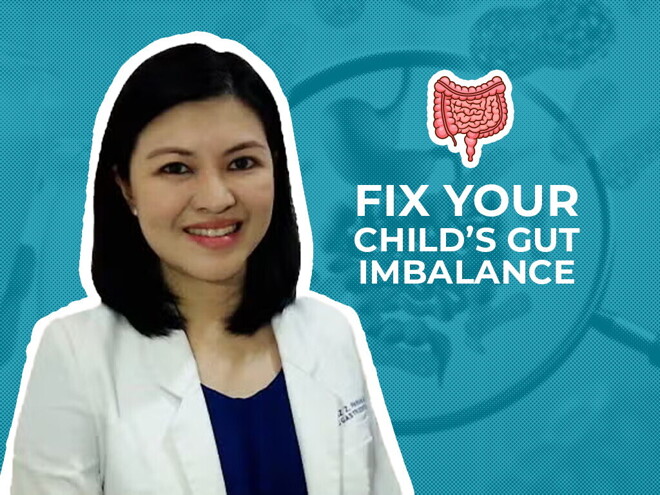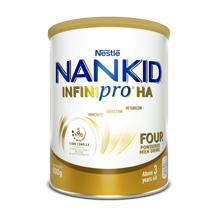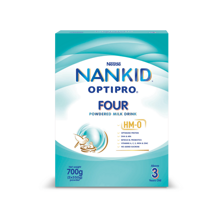
Gut Dysbiosis and Its Impact to the Child
Our body harbors trillions of microorganisms residing in our gastrointestinal tract referred to as the human gut microbiome. This vast microbial community is made up of both helpful and potentially harmful bacteria, viruses and fungi that co-exist harmoniously in our gut.
Each person has a unique network of microbiome that is originally determined by our genes.1 Early life factors diet, inflammation, use of antibiotics and other environmental exposures all shape a child’s microbiome and are found to be crucial for immunity and disease susceptibility later in life. 2 A healthy gut microbiome is characterized by a balance of its richness and diversity creating a resilient state that can easily cope with potential injuries, such as infections and other diseases.
So, when a disturbance to this balance happens that may be due to certain unhealthy diets (low fiber, high fat diet), illnesses or prolonged antibiotic use, dysbiosis occurs. A dysbiotic state, can occur when:
- There may be loss of the beneficial microbe,
- An overgrowth of the potentially harmful organisms and/or,
- Loss of overall diversity of the microbiome3,
Dysbiosis is associated with metabolic diseases4 (such as obesity, undernutrition, diabetes), infant colic5, inflammatory bowel disease4, asthma and other allergic diseases4,5, neurodevelopmental disorders5 and certain infections.
Certain strains of Lactobacillus and Bifidobacterium were found to stimulate immune cells that protect against inflammation and help in allergy prevention4.
Recognizing this, it is important to nurture and re-establish our child’s microbiome back to balance. Feeding your child a diet that is high in fiber, prebiotics and probiotics will nourish the gut microbiome and stimulate their growth.6 Food rich in prebiotics include onions, garlic, leeks, asparagus, bananas, apples, oats, and seaweed. Food such as yogurt and other fermented products contain live bacteria or probiotics that may help improve the microbiome, as well.
The state of the gut microbiome truly has an important impact in our child’s overall health. Boosting our kid’s gut health will not only promote their current health but will also set them up for a healthier future.
References:
1. Ihekweazu FD and Versalovic J. Am J Med Sci. 2018; 356(5):413-423.
2. Stiemsa LT and Michels KB. Pediatrics. 2018; 14(4):e20172437.
3. Petersen C and Round JL. Cellular Microbiology. 2014; 16(7):1024-1033.
4. Das B and Nair GB. J Biosci. 2019; 44(117): 1-8.
5. Underwood M, Mukhopadhyay S, Lakshminrusimha S et al. J Perinat. 2020; 40:1597-1608.
6. Peng M, Tabashum Z, Anderson M et al. E Compr Rev Food Sci Saf. 2020; 19:1908-1933.
Explore more expert articles below


















